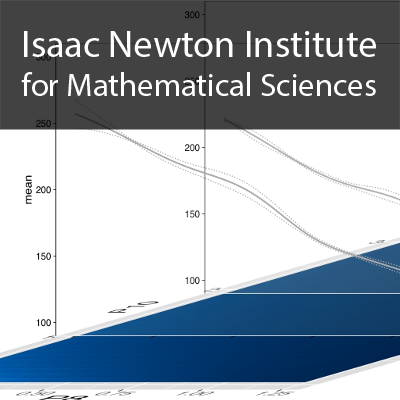Low-rank tensor approximation for sampling high dimensional distributions
37 mins 58 secs,
69.46 MB,
MP3
44100 Hz,
249.79 kbits/sec
Share this media item:
Embed this media item:
Embed this media item:
About this item

| Description: |
Scheichl, R
Monday 9th April 2018 - 15:00 to 15:30 |
|---|
| Created: | 2018-04-10 12:46 |
|---|---|
| Collection: | Uncertainty quantification for complex systems: theory and methodologies |
| Publisher: | Isaac Newton Institute |
| Copyright: | Scheichl, R |
| Language: | eng (English) |
| Distribution: |
World
|
| Explicit content: | No |
| Aspect Ratio: | 16:9 |
| Screencast: | No |
| Bumper: | UCS Default |
| Trailer: | UCS Default |
| Abstract: | High-dimensional distributions are notoriously difficult to sample from, particularly in the context of PDE-constrained inverse problems. In this talk, we will present general purpose samplers based on low-rank tensor surrogates in the tensor-train (TT) format, a methodology that has been exploited already for many years for scalable, high-dimensional function approximations in quantum chemistry. In the Bayesian context, the TT surrogate is built in a two stage process. First we build a surrogate of the entire PDE solution in the TT format, using a novel combination of alternating least squares and the TT cross algorithm. It exploits and preserves the block diagonal structure of the discretised operator in stochastic collocation schemes, requiring only independent PDE solutions at a few parameter values, thus allowing the use of existing high performance PDE solvers. In a second stage, we approximate the high-dimensional posterior density function also in TT format. Due to the particular structure of the TT surrogate, we can build an efficient conditional distribution method (or Rosenblatt transform) that only requires a sampling algorithm for one-dimensional conditionals. This conditional distribution method can also be used for other high-dimensional distributions, not necessarily coming from a PDE-constrained inverse problem. The overall computational cost and storage requirements of the sampler grow linearly with the dimension. For sufficiently smooth distributions, the ranks required for accurate TT approximations are moderate, leading to significant computational gains. We compare our new sampling method with established methods, such as the delayed rejection adaptive Metropolis (DRAM) algorithm, as well as with multilevel quasi-Monte Carlo ratio estimators. This is joint work with Sergey Dolgov (Bath), Colin Fox (Otago) and Karim Anaya-Izquierdo (Bath). |
|---|---|
Available Formats
| Format | Quality | Bitrate | Size | |||
|---|---|---|---|---|---|---|
| MPEG-4 Video | 640x360 | 1.93 Mbits/sec | 551.44 MB | View | Download | |
| WebM | 640x360 | 568.62 kbits/sec | 158.05 MB | View | Download | |
| iPod Video | 480x270 | 522.11 kbits/sec | 145.06 MB | View | Download | |
| MP3 * | 44100 Hz | 249.79 kbits/sec | 69.46 MB | Listen | Download | |
| Auto | (Allows browser to choose a format it supports) | |||||

